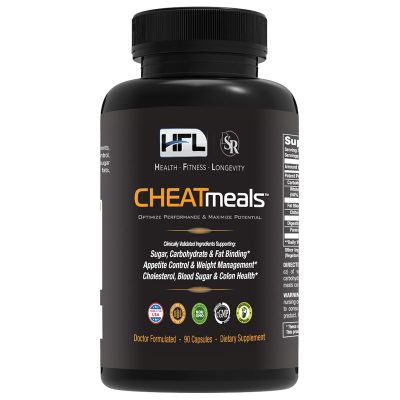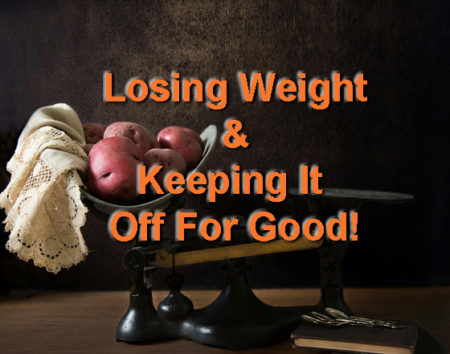When it comes to gaining weight (gain weight), certain food choices can be more likely to contribute to weight gain than others. While weight gain can be influenced by a variety of factors, including overall calorie intake and activity levels, some specific foods are often associated with weight gain.
Here are a few examples:
The Impact of Meat on Weight Gain: Considerations for a Balanced Diet
Red meat, such as beef and pork, is often higher in fat and calories compared to lean protein sources like poultry or fish.
Before indulging in a side of bacon with your eggs or diving into a juicy T-bone steak, it’s worth considering the potential consequences. A study tracking the diet and exercise habits of over 120,000 participants for up to 20 years found a correlation between processed and red meat consumption and an average weight gain of one pound every four years (in addition to weight gain from other foods).
Meat, both processed and red, can be particularly problematic when it comes to gaining weight due to its protein and saturated fat content. Both of these components have been linked to weight gain. Additionally, excessive consumption of animal protein has been scientifically associated with inflammation in the body, which can further contribute to weight gain.
It’s important to note that this doesn’t mean you have to completely eliminate meat from your diet. Occasional lean steak or burger consumption is generally considered acceptable. However, it is advisable to view meat as a supporting player rather than the main attraction in your diet.
To maintain a balanced diet, it’s recommended to include a variety of other protein sources, such as legumes, tofu, fish, poultry, and plant-based alternatives. These options provide essential nutrients while offering lower levels of saturated fat. Incorporating a range of fruits, vegetables, whole grains, and healthy fats can further contribute to a well-rounded and nutritious eating plan.
Remember, moderation and variety are key when it comes to achieving a balanced diet that promotes overall health and weight management. As always, consulting with a healthcare professional or registered dietitian can provide personalized guidance and recommendations for your specific dietary needs and goals.

Low Fat or Fat free Cookies & Muffins:
It’s common to assume that low-fat or fat-free cookies and muffins are healthier alternatives, but it’s important to be aware of the potential drawbacks. While these products are lower in fat, they often compensate by increasing the amounts of added sugars and refined carbohydrates.
High levels of added sugars and refined carbohydrates can have negative effects on your health and weight. Consuming excessive amounts of these ingredients can lead to weight gain, as they contribute to an increase in overall calorie intake. Additionally, foods with high sugar content can cause spikes in blood sugar levels and have less nutritional value.
When choosing low-fat or fat-free cookies and muffins, it’s crucial to read the labels and pay attention to the sugar and carbohydrate content. Opting for products with lower amounts of added sugars and seeking alternatives made with whole grains can be a wiser choice to maintain a balanced and healthy diet.

Yogurt: More Than Meets the Eye
Yogurt, despite being labeled as “fat-free,” can still be a source of hidden sugars. Take, for example, a 6-ounce container of chocolate nonfat yogurt, which can contain a surprising 25 grams of sugar. That’s more than the recommended daily limit for women. However, it’s important to note that yogurt itself is not inherently unhealthy.
In addition to being a good source of protein and calcium, many yogurts also contain beneficial bacteria that promote a healthy gut. These probiotics can have a positive impact on digestion and overall gut health.
While it’s true that some yogurts can be high in added sugars, there are options available that are lower in sugar or even free of added sugars. Choosing plain or Greek yogurt and adding your own fresh fruits or a drizzle of honey can be a healthier alternative. Reading ingredient labels and nutrition facts can help you make a more informed decision when selecting yogurt.

So, while yogurt can be a sneaky source of added sugars, it also offers several nutritional benefits. With the right choices, you can enjoy yogurt as part of a balanced diet and still support your gut health.
Non-Whole Wheat bagels:
White bagels are highly refined and lack fiber, which means they can cause a rapid increase in blood sugar levels. When it comes to breakfast staples, white or plain bread is an example of a simple carbohydrate that our bodies digest quickly, causing a rapid surge of sugar into our bloodstream. Similar examples include muffins, cookies, white bread, and certain cereals. But why do these foods contribute to weight gain?
The first reason is calories. Consuming more calories than your body needs can lead to weight gain. For instance, a large white bagel alone can contain over 360 calories. If you add a schmear of cream cheese at 100 calories, you’ve already consumed nearly a quarter of your daily calorie allowance if you follow a 2,000-calorie diet.

The second reason lies in the quick-digesting nature of simple carbs. After consuming these foods, you may feel hungry again relatively soon, which can lead to increased food intake. As Dr. Adam Goldstein, director of the University of North Carolina Weight Management Program, explains, the rapid digestion of simple carbs can prompt cravings and make you want to eat more.
However, if you still crave a bagel, it’s advisable to opt for one made from whole wheat or whole grains. These varieties typically contain more fiber, which can slow down digestion and help keep you fuller for longer. Additionally, consider enjoying just half of the bagel and pair it with fresh fruit as a healthier alternative.
Being mindful of portion sizes and choosing complex carbohydrates, such as whole grains, fruits, and vegetables, can help maintain a balanced diet and potentially support weight management goals.
Avocado, Nuts, and Olive Oil:
Avocado, nuts, and olive oil are all highly regarded for their nutritional benefits and contribution of healthy fats to our diets. These foods are rich in monounsaturated fats, which can help improve heart health and provide various other health benefits. However, it’s important to note that these foods are also calorie-dense.
While the fats in avocado, nuts, and olive oil are considered healthy, they are still high in calories. Just a small amount can provide a significant number of calories. Therefore, it’s crucial to exercise portion control when enjoying these foods, especially if weight management is a concern.
By being mindful of portion sizes and incorporating these foods into a well-balanced diet, you can enjoy their nutritional benefits without consuming excessive calories that may lead to weight gain. For example, adding a moderate amount of sliced avocado to a salad or using a small serving of olive oil to cook vegetables can be a healthier choice compared to consuming large quantities.

Frying Fish:
Cooking fish by frying it in hot oil can be detrimental to its nutritional value. Despite being a great source of heart-healthy omega-3 fatty acids, low in saturated fat, and high in protein, the process of deep frying fish adds unnecessary calories and unhealthy fat. However, there are alternative cooking methods that can preserve the health benefits of fish. Instead of frying, you can choose to bake, broil, or grill your fish. These methods retain the nutritional value of the fish while also minimizing the intake of unhealthy fats and calories.
Plant Fed Cows:
When it comes to plant-based dairy alternatives such as vegan cheese or ice cream, it’s essential to be mindful of their nutritional content. While these alternatives may be marketed as healthier options, it’s worth noting that they can still contain significant amounts of fats and calories. To make informed choices, it is recommended to carefully read the labels and prioritize options that are lower in added sugars and unhealthy fats. By doing so, you can enjoy plant-based dairy foods while maintaining a balanced and nutritious diet.

Carbonated and Other Sugar Filled drinks:
Regular consumption of carbonated and other sugary drinks, such as sodas, energy drinks, and sweetened fruit juices, can have negative effects on your health. These beverages are often loaded with added sugars, which can lead to weight gain over time. Moreover, these drinks provide what are known as “empty calories,” meaning they offer little to no nutritional value. By regularly consuming sugary drinks, you may inadvertently increase your overall calorie intake, which can have detrimental effects on your weight and overall health.

Remember, it’s all about moderation and balance when it comes to incorporating these nutrient-dense foods into your diet.
It’s important to note that weight gain is a complex process influenced by various factors. It’s not just about the individual foods you eat but also about your overall diet, portion sizes, and activity levels. A balanced and varied diet, combined with regular physical activity, is key to maintaining a healthy weight.
Keep in mind, if you have any concerns about weight gain or your overall health, it’s always a good idea to consult with a lifestyle healthcare professional or a registered dietitian for personalized advice and guidance.
There is help:
One supplement that can be beneficial when you’ve experienced a slip in your diet is CheatMeals™. It offers several advantages to help you get back on track. These include:
- Reduction of Sugars & Fats Entering Bloodstream*:
CheatMeals™ is designed to help minimize the negative impact of excess sugars and fats on your body. By using this supplement, you may be able to mitigate the effects of indulging in unhealthy foods. - Appetite Control (including sugar cravings)*:
CheatMeals™ aims to assist with appetite control, including cravings for sugary treats. By helping to suppress your appetite, it may be easier to resist unhealthy temptations and stay on course with your dietary goals. - Colon Health & Regularity (3 different fibers)*:
This supplement contains three types of fibers that promote colon health and regularity. These fibers can assist in keeping your digestive system functioning optimally. - Enhanced Digestion (4 different digestive enzymes)*:
CheatMeals™ is formulated with four different digestive enzymes to support efficient digestion. This can aid in the breakdown and absorption of nutrients from the foods you consume. - NO Stimulants (jitters, pressure, etc.):
Unlike certain supplements that may cause jitteriness or increased pressure, CheatMeals™ is free from stimulants. This means you can use it without experiencing any unwanted side effects.
As with any supplement, it is important to consult with your lifestyle healthcare professional to ensure it aligns with your individual needs and goals.
Do You have WhatsApp? Join our WhatsApp Group Today, Share Experiences Related To Weight Loss, Things That Worked or Just Looking For Advice. Click Here!
Here is a great article How To Lose Weight: Effective Weight Loss Strategies, Lifestyle and Exercise Routines.
**Disclosure Statement:** Make Money With Max Online promotes affiliate marketing products or services to help save you vital time when searching for courses or products that work.
This means that when you click on an affiliate link provided on our website and make a purchase, we may cost you.
We only recommend products or services that we believe in and have used ourselves. The commissions we earn through affiliate marketing help support the maintenance and growth of our website, allowing us to continue providing valuable content to our readers. Please note that our information and recommendations are solely based on our own experiences and research. Your own experience with any products or services recommended on our website may vary. Thank you for supporting Make Money With Max Online by using our affiliate links. Your support helps us continue our mission of helpful and honest information to our readers.




